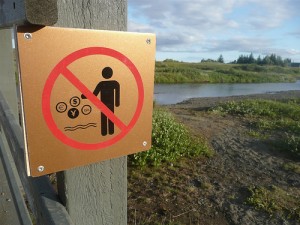 Well, do you? You may have already thrown it away, without even thinking of it that way. The money I’m referring to here would be what you have (or had) socked away in your IRA or 401(k) account. You might be thinking about cashing out that account in order to pay your credit card bills because you are falling behind and your minimum payments just went up, or you lost your job, or you just took a pay cut at work, or for whatever reason I haven’t mentioned here.
Well, do you? You may have already thrown it away, without even thinking of it that way. The money I’m referring to here would be what you have (or had) socked away in your IRA or 401(k) account. You might be thinking about cashing out that account in order to pay your credit card bills because you are falling behind and your minimum payments just went up, or you lost your job, or you just took a pay cut at work, or for whatever reason I haven’t mentioned here.
I know, you may not have as much as $50,000 in an IRA or a 401(k). It might be only $1200. Maybe it’s a lot more than $50,000. Or you might not even have a 401(k) or IRA account – but this post is targeted to those who do.
If you have fallen behind, or are about to fall behind, on your credit card payments and you are considering taking money from your IRA or 401(k) account to catch up those payments and to avoid bankruptcy, please reconsider. Before you touch any of that money, sit down and work out the numbers, without taking into consideration future job prospects or future money that *might* come your way at some point. Only use current income numbers – will cashing out your 401(k) or IRA savings really be a good thing? Don’t forget to add in the taxes, penalties, and/or interest that you will owe on the distribution from the 401(k) or IRA, plus the fact that if it’s a 401(k) loan, add in the money that you will owe yourself on that loan. And add in how much it will cost you to save up that much money all over again.
If you’ve worked out the numbers, did you notice how expensive it gets to take money out of these types of accounts and to use the money to pay down on your credit card debt? And how the amount probably doesn’t even cover all of your credit card debt? If the latter is the case, then I ask you: Why are you even thinking about it at all?
Regardless of whether you can pay off all of your credit card debt by cashing out a 401(k) or IRA, you would be doing yourself a disservice if you did not consider bankruptcy as an alternative. And I mean *alternative* – what I am trying to prevent by writing this post is a situation in which you cash out the 401(k) or IRA, throw the money at your credit cards, and then file for bankruptcy anyway. Because that will have been a terrible waste, and I’ll tell you why:
In Chapter 7 bankruptcies in New Jersey, most IRA and 401(k) accounts are safe from being taken and used to satisfy your debts.
That’s it, really. So if you are about to cash in that 401(k) or IRA account to pay on your credit cards, please think again and consider the huge costs you will be facing by doing so.
Photo by gmdesign1.

I have been struggling with this decision for the past month or so. I have been unemployed for about 16 months. I have two credit cards for a total of $25K in debt. The $300 a month each payments are killing me, especially since I’m only able to pay the minimum payment, which ends up lowering my balance by half the amount I pay, so lowering the balance is challenging to say the least. I’m already in a forbearance agreement with my mortgage lender after not being able to pay my mortgage for about 4 months, which has impacted my credit scores already. Now I’m considering Chapter 7 here in California but am concerned about completely destroying my credit for the next 7+ years, especially while I have two kids in college and another heading there in a couple of years. I have seen an attorney and can file/process the chapter 7 for about $2,000, which will eliminate my $25K in debt and protect my IRA account, or I can save my credit and payoff the credit card debt so I can breath while trying to find a job.
any thoughts ?
thanks for your article…
regards, Barry
Hi Barry,
Thank you for your comment. There are steps you can take under the FCRA after bankruptcy to begin the credit repair process. You may wish to closely examine the reasons why you think you need good credit. Are you planning to buy a house? This is not the best economy to consider a move like that. Are you planning to borrow money to buy a car? Consider saving up enough cash over time to buy a used car instead. Once you default on debt, your credit is shot for some time anyway. Ask yourself, how close are you to defaulting on debt?
And remember, bankruptcy does not totally destroy one’s credit for a full 7 years. The notation that you filed for bankruptcy will stay on your credit report for 10 years, but that does not mean that your credit has to be completely wrecked for that full period. Ask your attorney about the FCRA and how you can use it after bankruptcy.
If you need an attorney, I highly recommend using the attorney finder feature on this website: http://www.nacba.org/
Good luck,
Jennifer
Thanks for sharing your thoughts about 401(k). Regards